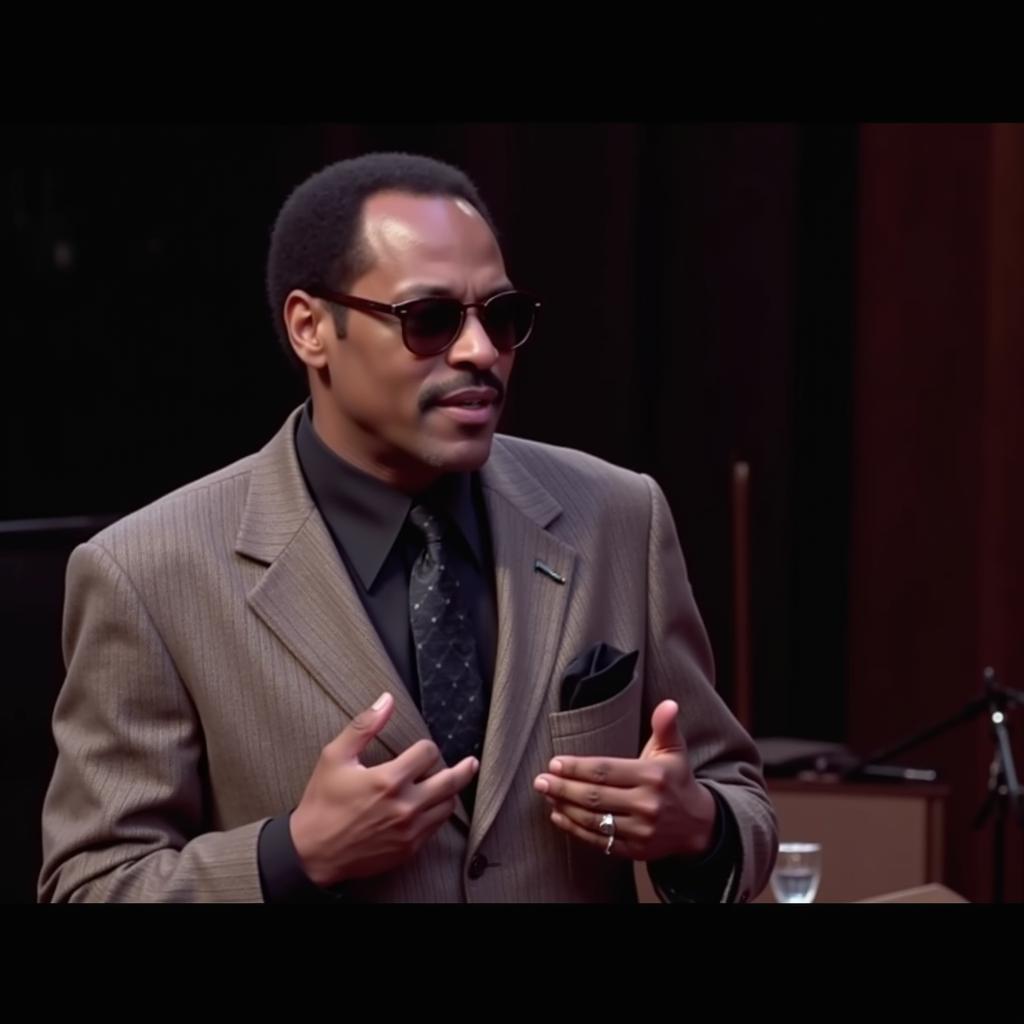Stevie Wonder, a name synonymous with musical genius, has left an enduring mark on society that transcends the realm of music. Born Stevland Hardaway Judkins in 1950, this prodigious talent rose from humble beginnings to become a global icon, captivating hearts with his soulful voice, masterful instrumentation, and unwavering message of love, unity, and social justice.
 Stevie Wonder performing live on stage
Stevie Wonder performing live on stage
Wonder’s extraordinary musical journey began at the tender age of eleven when he signed with Motown Records. His early hits like “Fingertips” and “Uptight (Everything’s Alright)” established him as a musical prodigy, shattering preconceived notions about the capabilities of a blind artist. However, it was in the 1970s that Wonder truly hit his stride, releasing a string of critically acclaimed and commercially successful albums that redefined the landscape of popular music. Masterpieces like “Talking Book,” “Innervisions,” and “Songs in the Key of Life” showcased his musical genius, tackling complex themes of love, loss, social injustice, and spirituality with unparalleled depth and vulnerability.
 Stevie Wonder in the recording studio
Stevie Wonder in the recording studio
Beyond his musical innovations, Wonder utilized his platform to advocate for social change, becoming a powerful voice in the fight for civil rights and equality. His iconic song “Happy Birthday” evolved into an anthem for the movement to recognize Martin Luther King Jr.’s birthday as a national holiday in the United States, a testament to the power of music as a catalyst for change. Wonder’s activism extended beyond his music, participating in rallies, benefit concerts, and using his influence to raise awareness about critical issues such as apartheid in South Africa.
 Stevie Wonder performing at a Martin Luther King Jr. tribute concert
Stevie Wonder performing at a Martin Luther King Jr. tribute concert
Stevie Wonder’s impact on society is immeasurable. He has inspired generations of musicians with his innovative soundscapes, pushing the boundaries of R&B, funk, soul, and pop music. His poignant lyrics and soulful melodies continue to resonate with audiences worldwide, reminding us of the power of music to uplift, inspire, and unite. His unwavering commitment to social justice serves as a powerful reminder that we all have a role to play in creating a more just and equitable world. Stevie Wonder’s legacy is a testament to the transformative power of music and the importance of using one’s platform to advocate for positive change.